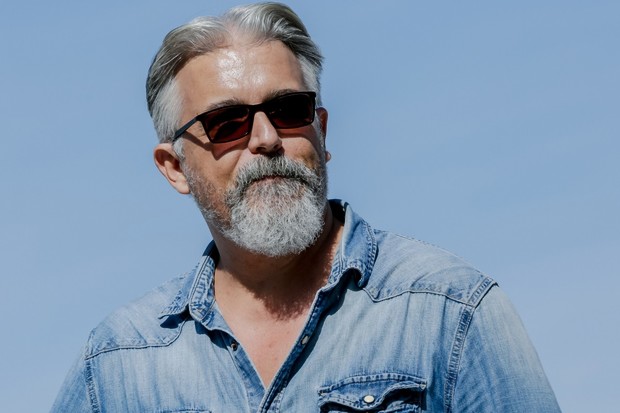SAN SEBASTIÁN 2017 Competition
Constantin Popescu • Director
“It wouldn’t hurt if filmmakers received more support from the authorities”
- SAN SEBASTIÁN 2017: We met up with Romanian director Constantin Popescu, whose third feature, Pororoca, is a rare Romanian psychological thriller

After directing Portrait of the Fighter as a Young Man [+see also:
film review
film profile], a historical film about the resistance fighters battling against the communist regime, and the family drama Principles of Life [+see also:
film review
trailer
interview: Constantin Popescu
film profile], Romanian director Constantin Popescu returns to the spotlight with a rare Romanian psychological thriller, Pororoca [+see also:
film review
trailer
interview: Constantin Popescu
film profile]. Here is what he has to say about the project, which is screening in competition at the 65th San Sebastián International Film Festival.
Cineuropa: Pororoca is a novel film for Romanian cinema. Where did the idea come from, and how did it evolve while you were writing the screenplay?
Constantin Popescu: The context is quite personal, and I would rather not talk about it too much. The idea came to me in 2008, and one year later, I talked about it for the first time. In 2010, I started documenting the story, and in 2014 I wrote the screenplay. The first draft was finished in January 2015. Documenting and establishing the exact itinerary of the two protagonists took longer than actually writing the screenplay.
Bogdan Dumitrache and Iulia Lumânare give two of the best performances in recent Romanian cinema. Can you give us any details about how you worked with them?
Thank you for your kind words. I knew them both, and actually the characters were written with them in mind. They both have very strong personalities, and they understand perfectly well the mechanics and the ethics of the profession, so they respected and supported each other, which can be felt in the film. I think we all succeeded in creating compelling characters, firstly while I was writing the screenplay, and afterwards in our long talks about them. The result is quite powerful, in my opinion.
Tell us the story of that 18-minute-long take…
It actually lasted 22 minutes, but I used only 18 minutes in the final cut. More than 150 people were on set (the team, extras, children and their parents, doctors and guards). The rehearsals and the shooting took one week. I spent two weeks on location with producer and DoP Liviu Mărghidan in order to choreograph every movement. It was a logistical nightmare because we didn’t receive the town hall’s approval to close off access to that area of the park.
Besides that, working with kids is quite unpredictable. Moreover, the days were extremely hot, with temperatures of 38 or even 39 degrees Celsius. It happened more than once that the sound recorders simply stopped working because of the excessive heat. We shot 21 takes in three days because we could only work for four hours per day, the maximum number of hours that children are allowed to work on a film set. It is the most difficult scene of my entire career.
What is, in your opinion, the most urgent issue to solve in the Romanian film industry?
After making Pororoca, I would say that obtaining a filming permit shouldn’t be such a trying endeavour. It wouldn’t hurt if filmmakers received more support from the authorities. Everyone cheers when Romanian films are well received internationally, but nobody hurries to help when a filmmaker wants to shoot in a public space. For this, special permits are needed, and lately getting them has become a difficult, sometimes humiliating endeavour, as if films were made for a privileged class and not for everyone. And another thing that is in the power of the authorities and that continues to be an issue: the non-existent cinemas.
Are you developing a new feature?
Yes; it is a film with a female protagonist and the first project of its kind made in Romania. From a visual and acoustic point of view, it will be something truly out of the ordinary.
Did you enjoy reading this article? Please subscribe to our newsletter to receive more stories like this directly in your inbox.















